Building a Diversified Rental Portfolio in Jupiter
Understanding the Importance of a Diversified Rental Portfolio
A diversified rental portfolio is crucial for achieving long-term financial stability and growth, especially in a dynamic real estate market like Jupiter, Florida. Investors often seek a variety of property types and locations within a portfolio to mitigate risks and maximize returns. This guide explores key strategies, actionable advice, and best practices for building and managing a diversified rental portfolio in Jupiter.
The Basics of Diversification in Real Estate
Diversification in real estate involves spreading investments across different property types, locations, and markets to reduce the impact of any one investment underperforming. For investors in Jupiter, this approach is particularly important due to the area’s diverse housing options and fluctuating market conditions. Let’s break down the core concepts:
1. Property Type Diversification
One of the most effective ways to diversify is through investing in different types of rental properties. Some of the most common property types in Jupiter include:
- Single-family homes: These properties are often sought after for long-term rentals, especially by families looking to settle in the area. They typically offer higher appreciation potential but may not generate as much cash flow in comparison to multi-family units.
- Multi-family properties: Duplexes, triplexes, and apartment buildings can provide steady cash flow through multiple rental units. However, they come with higher management responsibilities and may require more significant upfront capital.
- Vacation rentals: Given Jupiter’s appeal as a tourist destination, short-term vacation rentals can provide higher returns during peak seasons. These properties require active management, including marketing and guest communications.
2. Geographic Diversification
Another key strategy for building a diversified rental portfolio is choosing properties in different areas of Jupiter. Since the town spans various neighborhoods, each with its own set of advantages and target market, investors can benefit by spreading their investments across multiple zones.
- Waterfront properties: Properties near the Intracoastal Waterway or along the beaches are prime for both short-term and long-term rentals, as they attract tourists and affluent residents.
- Suburban areas: Neighborhoods such as Abacoa and Jupiter Farms offer family-friendly environments and can attract long-term tenants seeking peace and quiet with easy access to the city.
- Downtown Jupiter: Urban areas typically have higher population density, resulting in greater demand for rental units. Properties here can be great for young professionals or retirees.
3. Financial Diversification
In addition to property and geographic diversification, financial diversification is essential. Investors may consider employing a mix of financing strategies, including:
- Cash purchases: Buying properties outright without financing can provide significant returns but requires a larger upfront investment. This strategy can be ideal for those looking for minimal risk and steady rental income.
- Leverage: Using mortgages to purchase properties allows investors to acquire more units without having to tie up too much capital. While this increases the potential for returns, it also introduces higher risk, particularly if the market softens.
- Joint ventures and partnerships: Pooling resources with other investors can help overcome financial barriers and enable access to larger properties, such as multi-family units or commercial properties.
Identifying the Right Properties for Your Portfolio
Before purchasing any property, it’s essential to conduct thorough research to ensure it aligns with your overall investment strategy. Here are key factors to consider when evaluating potential rental properties:
1. Market Analysis
Understanding the local real estate market is fundamental to making informed decisions. In Jupiter, factors such as property values, rental rates, vacancy rates, and neighborhood trends must all be evaluated.
- Property values and appreciation potential: Look for areas with steady or increasing property values. For example, properties in waterfront areas or near top schools may offer higher appreciation potential.
- Rental demand and rates: Investigate the demand for both long-term and short-term rentals in different neighborhoods. High demand can help ensure a consistent stream of rental income.
- Vacancy rates: A high vacancy rate in a neighborhood may indicate poor rental demand or declining property values, making it a less desirable area for investment.
2. Property Condition and Maintenance Costs
The condition of the property plays a crucial role in the profitability of your rental investment. Be sure to conduct a thorough inspection of each property before purchasing, taking note of:
- Age of the property: Older properties may require more frequent repairs and maintenance, leading to higher costs in the long run.
- Renovation potential: Some properties may be in need of cosmetic updates or repairs, which could provide an opportunity to increase rental income through value-added improvements.
- Ongoing maintenance: Consider how much it will cost to maintain the property, especially if you are managing multiple units. Regular repairs and upkeep are essential for preserving the value of your portfolio.
3. Rental Yield and Cash Flow Analysis
To ensure the long-term success of your rental portfolio, it’s important to understand the expected returns from each property. The two most common metrics used to evaluate rental properties are:
- Cap rate (Capitalization rate): This metric gives you an idea of the potential return on investment based on the income the property generates. It’s calculated by dividing the annual net operating income by the property’s purchase price.
- Cash-on-cash return: This calculation measures the annual cash flow relative to the cash invested in the property. It’s a helpful metric for understanding how much money you’ll make on your investment annually.
Managing and Growing Your Portfolio
Once you’ve acquired rental properties in Jupiter, effective management is essential to ensuring long-term success. Here are some tips for managing and scaling your rental portfolio:
1. Property Management Considerations
There are two main approaches to property management: self-management and professional management. Each has its own pros and cons, so it’s important to evaluate your own skills, time, and budget.
- Self-management: This approach gives you complete control over your properties but can be time-consuming. You will be responsible for handling tenant inquiries, maintenance issues, rent collection, and legal matters.
- Professional property management: Hiring a property management company can save you time and effort, especially if you own multiple properties or live outside the area. However, management fees typically range from 8% to 12% of monthly rental income.
2. Scaling Your Portfolio
As you begin to see success with your rental investments, you may consider scaling your portfolio. There are several ways to grow your holdings:
- Refinancing: If your properties have appreciated in value, you may be able to refinance and use the proceeds to acquire additional properties.
- Leverage partnerships: Forming partnerships with other investors allows you to pool resources and acquire larger or more expensive properties.
- Focus on high-demand areas: Continue to focus on areas with strong rental demand and potential for appreciation. Expanding into new markets or adding more properties in established areas can help grow your portfolio.
3. Risk Management and Mitigation
As with any investment, there are risks involved in real estate. To mitigate these risks, consider the following strategies:
- Property insurance: Protect your assets with comprehensive insurance policies that cover both the property and the tenants.
- Tenant screening: Thoroughly vet potential tenants to ensure they are reliable and financially stable.
- Emergency funds: Set aside reserves to cover unexpected repairs, vacancies, or other issues that may arise.

Get a Free Rental Analysis
Want to know how much your home will rent for? We’ll send you a free rental report!
Navigating the Legal and Regulatory Landscape in Jupiter
When building and managing a diversified rental portfolio in Jupiter, Florida, it’s crucial to be aware of the local laws and regulations that affect property ownership, leasing, and tenant rights. Adhering to these legal requirements will not only help avoid costly legal battles but also ensure your business operations run smoothly.
1. Zoning Laws and Property Use Regulations
Each neighborhood in Jupiter may have its own zoning laws that dictate how properties can be used. For instance, some areas may restrict short-term rentals, while others may allow them with certain conditions. It’s important to familiarize yourself with local zoning regulations, especially if you plan on operating short-term vacation rentals.
- Residential vs. Commercial Zoning: If you are considering purchasing multi-family or commercial properties for rental purposes, ensure that the property is zoned appropriately for your intended use. Commercially zoned properties may offer more flexible leasing opportunities but may come with stricter regulations and higher operating costs.
- Short-term Rentals: Jupiter, like many Florida cities, has specific rules regarding short-term vacation rentals, including occupancy limits and duration restrictions. The rules may vary based on location, so it’s essential to check with the local zoning office or a Jupiter realtor to ensure compliance with short-term rental laws.
2. Landlord-Tenant Laws in Florida
Understanding landlord-tenant laws is crucial for smooth operations when renting out properties. Florida’s landlord-tenant laws are relatively straightforward, but they do have specific nuances that landlords should be aware of:
- Security Deposits: Florida law allows landlords to collect security deposits but limits how they are handled. For instance, landlords are required to return security deposits within 15 days after the tenant vacates the property if no damages occur, or within 30 days if there are damages to the property. It’s essential to clearly outline these terms in the lease agreement.
- Lease Agreements: A well-drafted lease agreement is essential for protecting both the landlord and the tenant. This legal document should clearly outline rent payment terms, maintenance responsibilities, the duration of the lease, and the consequences of any lease violations. A comprehensive lease helps prevent disputes and clarifies both parties’ rights.
- Evictions: If tenants fail to pay rent or breach their lease agreement, landlords may need to go through the eviction process. In Florida, eviction procedures are governed by state law, which requires landlords to provide tenants with a formal notice and, in some cases, go through a court hearing. Understanding this process is vital to avoid delays and ensure that your property is not left vacant for extended periods.
3. Property Taxes in Jupiter
Florida property taxes are based on the value of the property, and Jupiter follows state rules in determining the tax rates. Being aware of the tax implications is an essential step in managing your rental portfolio effectively.
- Ad Valorem Taxes: These taxes are assessed on the value of the property and can vary depending on the location and type of property. Properties in waterfront areas or desirable neighborhoods in Jupiter may be subject to higher property taxes due to their higher valuation.
- Tax Deductions: As a property owner, you can claim deductions for mortgage interest, property maintenance, repairs, and depreciation. Keeping detailed records of these expenses is crucial for tax filing and maximizing deductions.
4. Insurance Requirements
Proper insurance coverage is essential to protect your rental properties from potential risks, such as natural disasters, tenant damage, or theft. Insurance requirements may vary depending on the type of property you own, but here are some essential coverages to consider:
- Landlord Insurance: This covers the physical structure of the property and damages caused by tenants, vandalism, or fire. It also typically includes liability coverage in case someone is injured on the property.
- Flood Insurance: Florida is prone to hurricanes and flooding, so it’s recommended to invest in flood insurance if your property is located in a flood zone. The Federal Emergency Management Agency (FEMA) provides flood maps that can help you determine if your property needs this type of insurance.
- Rent Loss Insurance: If your property becomes uninhabitable due to a disaster or major repair issue, rent loss insurance helps cover the lost rental income until repairs are completed.
Financing Your Rental Properties in Jupiter
Financing is often one of the biggest challenges for investors looking to build a diversified rental portfolio. Jupiter, like many parts of South Florida, offers a wide range of financing options, from traditional mortgages to alternative lending sources. Here are some tips to help you navigate the financing landscape:
1. Traditional Mortgages
A conventional mortgage is the most common method of financing for real estate investors. Typically, lenders require a larger down payment for investment properties—usually 20% to 25% of the property’s purchase price. Interest rates for rental properties tend to be higher than those for primary residences, reflecting the added risk to the lender.
- Fixed-rate Mortgages: These mortgages offer stability with consistent monthly payments and can be a good option for investors seeking long-term property holdings.
- Adjustable-rate Mortgages (ARMs): These mortgages may offer lower initial interest rates, but the rate can change after a few years. ARMs can be a good option for investors who plan to sell or refinance their property before the rate adjusts.
2. Alternative Financing Methods
In some cases, traditional financing may not be the best option, especially if you are looking to acquire multiple properties quickly or have unique financial needs. Alternative financing methods include:
- Hard Money Loans: These short-term loans are typically used for quick property acquisitions and are secured by the property itself. While they come with higher interest rates and shorter terms, they can be an option for investors who need capital quickly and may not qualify for traditional loans.
- Private Loans and Partnerships: Partnering with other investors or borrowing from private lenders can help you secure capital for your rental properties. In some cases, investors can use joint ventures to pool resources and invest in larger properties or more expensive markets.
- Home Equity Lines of Credit (HELOC): If you own other properties in Jupiter or Florida, you may be able to tap into their equity to finance new purchases. A HELOC offers flexibility, allowing you to borrow funds as needed and pay interest only on the amount you use.
3. Real Estate Investment Groups (REIGs)
Real estate investment groups are a way for investors to pool their resources and purchase rental properties collectively. These groups typically focus on larger multi-family properties or commercial buildings, offering investors an opportunity to diversify their portfolios without having to manage properties themselves.
- Pros: REIGs provide an opportunity to access high-value properties that may be otherwise out of reach, and they typically handle property management and day-to-day operations for investors.
- Cons: As a passive investor, you may have limited control over decisions and are subject to management fees and the group’s investment strategy.
Market Trends in Jupiter: What to Watch For
To ensure your rental portfolio remains profitable, staying on top of market trends in Jupiter is essential. Here are some trends that could impact your investments:
1. Population Growth and Demographic Shifts
Jupiter is experiencing population growth, particularly among retirees and young professionals. This shift in demographics is driving demand for both rental and for-sale properties, particularly in desirable neighborhoods such as Abacoa and near the waterfront.
- Retirees: Many retirees are looking to move to Jupiter for its warm climate, amenities, and recreational opportunities. This demographic tends to prefer long-term rental properties in quiet, suburban neighborhoods.
- Young Professionals: With the rise of remote work and a strong local economy, Jupiter is attracting more young professionals who are seeking rental properties near downtown or in walkable, amenity-rich areas.
2. Increasing Demand for Vacation Rentals
With its close proximity to the beaches and year-round pleasant weather, Jupiter continues to be a popular destination for tourists. Short-term vacation rentals are in high demand, especially during the winter months when snowbirds flock to South Florida. Investors looking to capitalize on this trend may want to consider adding vacation rental properties to their portfolios, especially in prime tourist locations.
3. Sustainability and Green Building Practices
Sustainable living is becoming more important to tenants and investors alike. Properties with energy-efficient features, such as solar panels, energy-efficient appliances, and green building certifications, are becoming increasingly popular. Investing in eco-friendly properties can not only attract tenants who are willing to pay a premium for sustainable living but can also help reduce long-term operational costs.

Building a Strong Property Management System
To maximize the profitability and efficiency of your diversified rental portfolio in Jupiter, it’s essential to establish a strong property management system. Proper management not only enhances the tenant experience but also ensures that your properties are well-maintained, compliant with regulations, and continuously generating income.
1. Hiring or Outsourcing Property Management
As a property owner with multiple rental units, deciding whether to manage the properties yourself or hire a property management company is a crucial decision. While managing the properties yourself can save on management fees, it can also be time-consuming and labor-intensive, especially as your portfolio grows.
- Self-management: Self-managing your rental properties can be a rewarding experience, as you have full control over your operations. However, you will need to handle everything from tenant screening to maintenance requests. This option may be ideal for smaller portfolios or owners who are familiar with local regulations and enjoy the day-to-day responsibilities.
- Property Management Companies: Property management companies offer professional services that handle tenant relations, property maintenance, rent collection, and more. They charge management fees—typically 8% to 12% of the monthly rent—but can save you time and effort, allowing you to focus on growing your portfolio. When selecting a property manager, look for companies with a proven track record in the Jupiter market and those that understand your investment strategy.
2. Tenant Screening and Retention
Tenant selection is one of the most critical factors in the success of your rental portfolio. The right tenants will pay rent on time, take care of your property, and stay for longer periods. On the other hand, bad tenants can lead to costly repairs, lost rent, and legal headaches. Implementing a rigorous tenant screening process is essential to ensure you are renting to responsible individuals.
- Screening Process: A thorough screening process should include background checks, credit checks, employment verification, rental history, and references. This will help you assess whether a potential tenant is reliable and capable of fulfilling the terms of the lease agreement.
- Tenant Retention: It’s often more cost-effective to retain existing tenants than to constantly find new ones. To encourage tenant retention, offer incentives such as lease renewal bonuses, quick responses to maintenance requests, or even small improvements to the property. A positive relationship with your tenants can lead to longer stays, reducing vacancy rates and turnover costs.
3. Property Maintenance and Repairs
Maintaining your properties in excellent condition is critical for tenant satisfaction and long-term profitability. A well-maintained property will not only attract quality tenants but will also preserve or increase the property’s value.
- Routine Inspections: Conducting regular property inspections is essential to identify potential maintenance issues before they become costly problems. Regular checks on appliances, plumbing, HVAC systems, and roofing can help spot signs of wear and tear.
- Responding to Maintenance Requests: Promptly addressing tenant maintenance requests is crucial for maintaining tenant satisfaction and preventing small issues from escalating. A delay in addressing repairs can lead to dissatisfaction, complaints, or even tenant departures.
- Seasonal Maintenance: Given Jupiter’s climate, properties may be susceptible to wear from humidity, storms, or saltwater exposure, particularly in coastal areas. Be proactive in scheduling seasonal maintenance, such as cleaning gutters, inspecting roofs for storm damage, and checking air conditioning systems before peak summer months.
Managing Cash Flow and Maximizing Profits
Cash flow management is a critical aspect of a successful rental property investment strategy. A well-planned financial approach can help you ensure that your properties remain profitable while covering ongoing costs and building equity over time.
1. Rent Collection and Financial Tracking
Establishing an efficient rent collection system is essential to maintaining a consistent cash flow. Whether you choose to handle rent collection yourself or through a property manager, there are several methods to make the process more streamlined.
- Automated Rent Collection: With today’s technology, many property management companies and landlords are utilizing automated rent collection platforms that allow tenants to pay online. These systems often offer reminders and ensure that payments are collected on time, reducing the risk of missed or late payments.
- Late Fees: To encourage timely payments, consider including late fees in your lease agreement. These fees act as a deterrent for late payments and can offset the cost of delays. However, ensure that the fees comply with Florida’s landlord-tenant laws.
- Financial Tracking: Keeping track of income and expenses is essential for financial planning, tax filing, and portfolio analysis. Use accounting software or hire a professional accountant to track rental income, maintenance expenses, and other financial transactions. This will help you understand the financial health of your portfolio and identify areas for improvement.
2. Property Upgrades and Value Additions
Investing in property upgrades is a great way to increase the value of your rental properties and boost rental income. Even simple improvements can attract higher-quality tenants or allow you to command higher rental rates.
- Cosmetic Upgrades: Small improvements, such as repainting, updating fixtures, and landscaping, can significantly improve the property’s curb appeal and overall attractiveness. These upgrades are often cost-effective but can result in higher rents and increased tenant interest.
- Energy-Efficiency Improvements: As sustainability becomes more important to tenants, energy-efficient features such as energy-saving appliances, LED lighting, and better insulation can be an attractive selling point. These upgrades can reduce operating costs over time and appeal to eco-conscious renters.
- Renovating for Higher Rents: If you own older properties, you may consider larger renovations to bring the property up to modern standards. For example, updating kitchens and bathrooms or adding additional living space can justify a rent increase, enhancing both tenant satisfaction and your bottom line.
Expanding Your Portfolio in Jupiter: Strategies for Growth
As your rental portfolio matures, you may want to expand by acquiring additional properties. Growth is an essential aspect of long-term success in real estate investing, and there are several strategies for expanding your portfolio effectively while minimizing risk.
1. Buy-and-Hold Strategy
The buy-and-hold strategy is one of the most common approaches to growing a rental property portfolio. This strategy involves purchasing properties that are expected to appreciate in value over time while generating steady rental income.
- Focus on High-Demand Areas: In Jupiter, neighborhoods like Abacoa and those near the coast have shown strong long-term growth potential due to their desirability. Focus on properties in areas with strong rental demand, good schools, and convenient access to amenities to ensure that your investments retain or increase in value.
- Reinvesting Rental Income: Use the income generated from your rental properties to reinvest in additional properties. This approach allows you to scale your portfolio steadily over time while maintaining a sustainable cash flow.
2. Leveraging Equity for Additional Purchases
Once you have acquired a few properties, you can leverage the equity built in those properties to fund future acquisitions. This method allows you to use the property’s increased value to secure financing for additional investments without needing to use cash savings.
- Refinancing: Consider refinancing your existing properties to pull out equity that can be used for down payments on new properties. If property values in Jupiter are appreciating, refinancing may offer a lower interest rate and a more favorable loan term, enhancing your investment returns.
3. Diversifying Property Types
As your portfolio grows, consider diversifying the types of rental properties you own. This could include single-family homes, multi-family properties, vacation rentals, and commercial properties. Diversification spreads risk and can lead to more consistent returns, as different property types often perform differently in various economic conditions.
- Multi-family Properties: These properties typically offer a higher return on investment due to their ability to generate multiple income streams from a single location. They are especially effective for investors looking to scale quickly.
- Vacation Rentals: Given Jupiter’s appeal as a tourist destination, vacation rentals can be a lucrative addition to your portfolio. These properties often command higher rental rates, particularly during peak seasons, but they require more management and may have higher turnover.
Building a diversified rental portfolio in Jupiter requires careful planning, financial discipline, and an understanding of the local market. By focusing on strategic acquisition, effective property management, and cash flow maximization, you can position yourself for long-term success in the Jupiter real estate market. The combination of a strong foundation and growth-oriented strategies will help you build wealth through real estate while minimizing risks.
Suggested Relevant Links:
Commercial vs. Residential Real Estate Investment: Which One is Right for You?
Palm Beach Real Estate Management Services
Real Estate Management Palm Beach County
Investment Property Management Palm Beach
Commercial vs. Residential Real Estate: Making the Right Investment Choice
FAQ: Building a Diversified Rental Portfolio in Jupiter
1. What is the best type of property to invest in for a rental portfolio in Jupiter?
The best type of property depends on your investment goals and risk tolerance. Single-family homes in popular neighborhoods like Abacoa or near the coast are great for stable long-term rental income. For higher returns, consider multi-family properties or vacation rentals, which can offer higher rental rates but require more active management.
2. How can I manage multiple rental properties efficiently?
You can manage multiple properties by either handling it yourself or hiring a property management company. Property managers can take care of tenant relations, maintenance, and rent collection, while you focus on expanding your portfolio. If self-managing, consider using property management software to streamline processes.
3. How can I maximize cash flow from my rental properties in Jupiter?
Maximizing cash flow involves ensuring your properties are consistently occupied, minimizing vacancies, and maintaining competitive rental prices. Regular property upgrades, efficient rent collection systems, and keeping maintenance costs low are also important strategies for boosting cash flow.
4. What are the common challenges in managing a rental portfolio?
Common challenges include tenant turnover, late payments, maintenance issues, and ensuring compliance with local rental laws. Implementing a rigorous tenant screening process, maintaining a solid relationship with tenants, and being proactive with property maintenance can help overcome these challenges.
5. Is it better to diversify my portfolio with different types of properties?
Yes, diversifying your portfolio by owning different types of rental properties—such as single-family homes, multi-family units, and vacation rentals—can help mitigate risk and stabilize your cash flow. Different property types can perform differently based on market conditions, ensuring you’re not overly reliant on one type of property.
6. How can I grow my rental portfolio in Jupiter?
To grow your portfolio, consider using the equity from existing properties for additional purchases, and explore financing options like refinancing. Also, focus on acquiring properties in high-demand areas like Abacoa or coastal neighborhoods. Reinvest rental income for continued growth.
7. What are the tax implications of owning rental properties in Jupiter?
Owning rental properties in Jupiter comes with tax responsibilities. You’ll need to report rental income and can deduct expenses like mortgage interest, property taxes, maintenance, and depreciation. Consult with a tax professional to maximize deductions and ensure compliance with state and federal tax laws.



